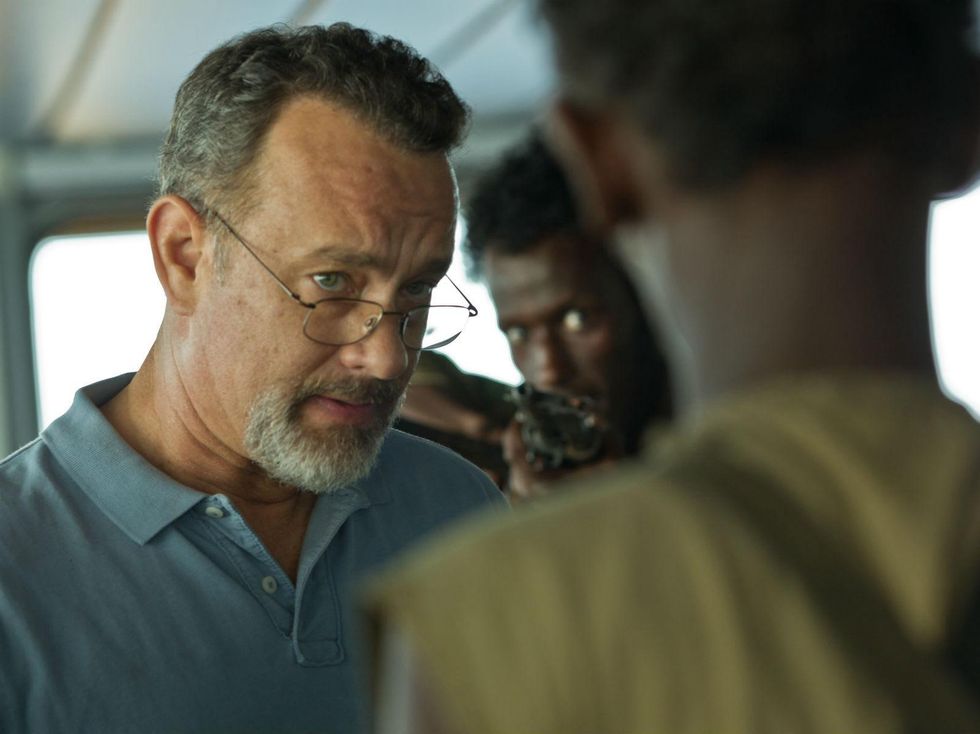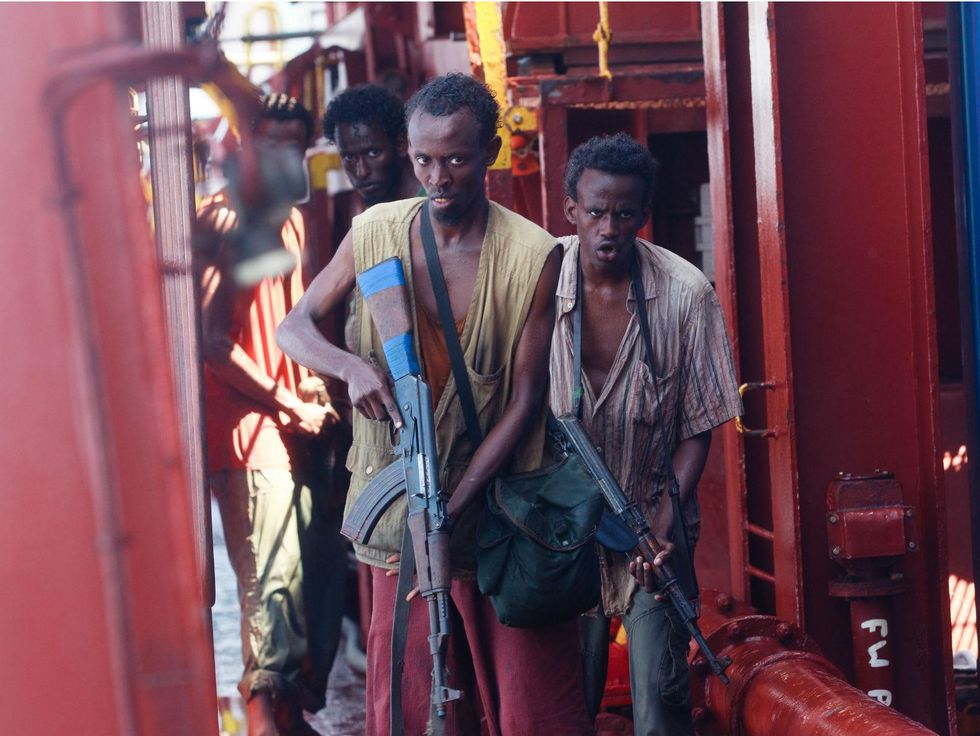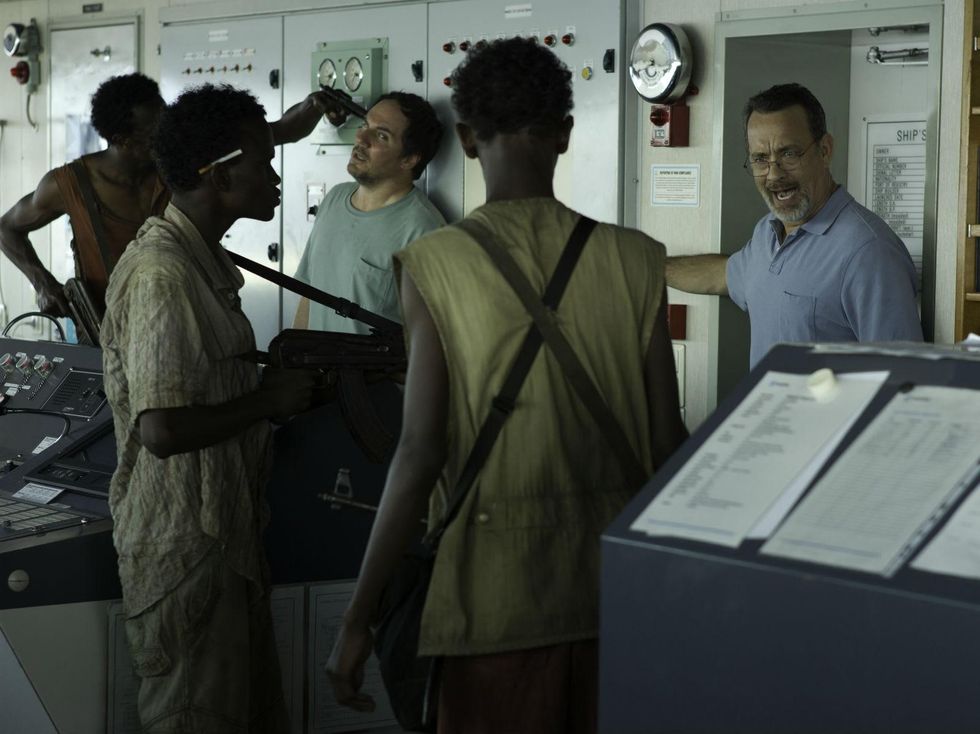Real-Life Hijacking Drama
Tom Hanks lines up next Oscar with gripping performance in Captain Phillips
The story of Captain Richard Phillips, who was taken hostage from his cargo ship by Somali pirates in 2009, is just far enough removed to have mostly faded from public consciousness. But if there’s anyone who can bring it roaring back, it’s Tom Hanks and director Paul Greengrass in Captain Phillips.
Hanks plays Phillips, who had the thankless job of piloting a ship transporting goods from the Arabian peninsula to the east coast of Africa, an area of the world notorious for being full of pirates looking to hijack boats just like his. Although Phillips and his crew knew the risks, they continued for a variety of reasons, including pressure from their parent company, Maersk.
Even though you know it’s all leading up to a hostage situation, the film does a highly effective job of keeping the suspense ratcheted up throughout.
The film takes us every step of the way, from Phillips’ receiving warnings of pirates in the area to white-knuckle chase scenes involving the ship and Somali speedboats to the struggle between the pirates and the crew for control over the ship. Even though you know it’s all leading up to Phillips’ being taken hostage, the film does a highly effective job of keeping the suspense ratcheted up throughout.
Greengrass, whose cinema vérité style has served him well in the Bourne films and United 93, brings a similar aesthetic to this film. He and screenwriter Billy Ray put the audience right there with both the ship’s crew and the Somalis who want to take the ship, and the result is a story that’s often so realistic you might be holding your hands in the air right along with the crew.
The film’s treatment of the hijackers is both laudable and frustrating. Greengrass and Ray want to show that the Somalis are not evil people, just ones driven to commit crimes such as this due to conditions in their homeland. The characters are given plenty of opportunities to talk about their background, but this inclusion means the film is extended at least 20 minutes longer than it needs to be.
This also does no favors to the untrained Somali-American actors hired to portray the hijackers. For much of the film, they do a fantastic job of being menacing, desperate or even sympathetic. But the script embellishes their screen time to the point that they become repetitive — and therefore less effective.
The one exception is Barkhad Abdi, who plays the leader, Muse. His slightly protruding eyes, misshapen jawline and ever-changing demeanor make him a great fit for the role.
The other standout, of course, is Hanks. Adopting a New England accent and Van Dyke beard, he makes Phillips relatable yet authoritative, scared but never terrified. It’s been 12 years since Hanks was nominated for an Oscar and 18 years since he’s won one. He stands a great chance at doing both with this role. Hanks all but earns the award with his performance in the final 15 minutes, emoting in a way that makes you feel he actually lived through the hijacking nightmare.
Captain Phillips doesn’t maintain its momentum all the way through its running time, but it has enough memorable moments and stellar acting from Hanks to put it on the list of great fall films in 2013, a ledger that’s looking like it will be a long one.




